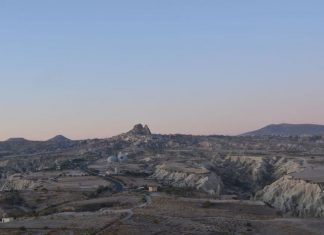The people of this town hold the famous [picnics called] subut an-nakhl in this wise. They go out to the palmgroves every Saturday during the season of the colouring and ripening of the dates. Not a soul remains in the town, whether of the townsfolk or of the visitors. The musicians go out [to entertain them], and the shopkeepers go out selling fruits and sweetmeats. The women go in litters on camels. For all we have said of their exceeding beauty they are virtuous and possessed of excellent qualities. They show a predilection for foreigners, and do not refuse to marry them, as the women in our country [Tangiers, Morocco] do.
When a woman’s husband wishes to travel she goes out with him and bids him farewell, and if they have a child, it is she who takes care of it and supplies its wants until the father returns. While he is absent she demands nothing from him for maintenance or clothes or anything else, and while he stays with her she is content with very little for upkeep and clothing. But the women never leave their own towns, and none of them would consent to do so, however much she were offered.
Ibn Battuta travels on to Ta’izz and San’a
We went on from there to the town of Ta’izz, the capital of the king of Yemen, and one of the finest and largest towns in that country. Its people are overbearing, insolent, and rude, as is generally the case in towns where kings reside. Ta’izz is made up of three quarters; the first is the residence of the king and his court, the second, called ‘Udayna, is the military station, and the third, called al-Mahalib, is inhabited by the commonalty, and contains the principal market.
The sultan of Yemen is Nur ad-Din ‘Ali of the house of Rasul. He uses an elaborate ceremonial in his audiences and progresses. The fourth day after our arrival was a Thursday, on which day the king holds a public audience.
The qadi presented me to him and I saluted him. The way in which one salutes is to touch the ground with the index-finger, then lift it to the head and say “May God prolong thy Majesty.” I did as the qadi had done, and the king, having ordered me to sit in front of him, questioned me about my country and the other lands and princes I had seen. The wazir was present, and the king ordered him to treat me honourably and arrange for my lodging.
Read More about Ibn Battuta part 8








